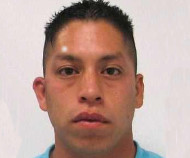11/10/2015
US Supreme Court Sides With Cops In Deadly Police ChaseUS Supreme Court grants immunity to police officer who used a rifle to kill a reckless motorist from an overpass.

Police deserve the benefit of the doubt when using deadly force against a dangerous driver. The US Supreme Court on Monday gave a pass to a Texas state trooper who gunned down a fleeing motorist wanted for a misdemeanor probation violation on March 23, 2010.
Tulia, Texas police officers went to a drive-in restaurant with a warrant in hand to arrest Israel Leija Jr, but the 24-year-old did not want to be caught. He took off in his Pontiac Grand Am at speeds of up to 110 MPH on Interstate 27. During the eighteen-minute pursuit, Leija twice called from his cellphone to warn officers to back off, or he would shoot them. Texas state police set up spike strips in the hopes of forcing Leija to stop.
Before he hit the spikes, Trooper Chadrin Lee Mullenix had other ideas. The underperforming trooper had recently been warned by supervisors that he needed to be more proactive. So he set himself up on an overpass, and as soon as Leija came into view, he fired six shots down into the Grand Am with his police-issue Bushmaster M4. Leija was hit four times and killed. The car rolled violently into the side of the road.
"How is that for being proactive?" Trooper Mullenix said to his colleagues.
Leija's family sued, arguing the trooper's actions were reckless and excessive. The courts that considered the case argued over whether Trooper Mullenix was entitled to immunity for his actions. A district judge and the Fifth Circuit US Court of Appeals said no, because Leija did not present any immediate threat on the empty road. The high court disagreed, deciding that the trooper did not violate clearly established law by pulling the trigger, because a murky legal question must be decided in favor of the police.
"The fact is that when Mullenix fired, he reasonably understood Leija to be a fugitive fleeing arrest, at speeds over 100 miles per hour, who was armed and possibly intoxicated, who had threatened to kill any officer he saw if the police did not abandon their pursuit, and who was racing towards Officer Ducheneaux's position," the high court majority wrote. "Qualified immunity protects actions in the hazy border between excessive and acceptable force."
Justice Sonia Sotomayor dissented, arguing Trooper Mullenix went "rogue" by acting without permission from his supervisor. Since the shots were fired less than 30 yards from the spike strips, nothing was gained from shooting first.
"Whatever threat Leija posed after his car was stopped existed whether the car was stopped by a shot to the engine block or by the spike strips," Justice Sotomayor wrote. "By sanctioning a 'shoot first, think later' approach to policing, the court renders the protections of the Fourth Amendment hollow."
A copy of the ruling is available in a 120k PDF file at the source link below.


